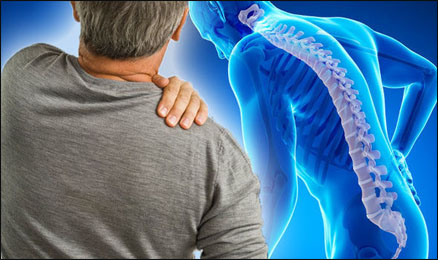
Symptoms of back pain can vary. You should talk to your doctor about your symptoms and work activity. Your doctor may order an imaging test to see the cause of your pain. The images may reveal a broken bone, herniated disc, pinched nerve, tumor, narrowed spinal canal, or other conditions. The doctor may prescribe pain medication or physical therapy. The latter can help you deal with the pain and return to normal activities.
Over-the-counter pain medications can help relieve your discomfort. Acetaminophen (Tylenol) and ibuprofen (Advil) are two common medicines that help relieve back pain. Avoid lying on your back because it increases pressure on your lower back. Instead, try lying on your side to decrease pressure. Massages and warm baths are also helpful in relaxing stiff muscles. The appropriate dose will be determined by your doctor.
If you are experiencing back pain, it is important to see a doctor for a thorough diagnosis. Treatments vary depending on the type of pain you’re experiencing. Nonsteroidal anti-inflammatory drugs and over-the-counter medications are the most common choices. Heat and ice are both beneficial to the back. Performing a stretching exercise daily can strengthen the muscles of the upper body and improve posture. In some cases, your back may be a source of back pain.
If you’re experiencing back pain, there are several treatments to consider. A doctor may prescribe an over-the-counter medication to ease your discomfort. Over-the-counter medications such as ibuprofen (Advil), Motrin IB, or Tylenol can help. You should avoid sleeping on your back, as this can aggravate your pain. Instead, you should try to lie on your side. You should also avoid standing for long periods of time because it can put additional pressure on your back. A warm bath or a massage can also relax your muscles.
The most common form of back pain is caused by a herniated disc, a small spongy disc that breaks open and presses on the nerves in the spine. Herniated discs are more common in the lower back and neck, but can occur in other areas of the body. A doctor will determine which type of treatment is best for you. If you’re suffering from chronic back pain, he or she may recommend lifestyle changes, such as changing your diet or taking an anti-inflammatory drug.
Back pain symptoms are common and can be caused by a variety of conditions. A complete history and physical examination are the most important first steps in determining the cause of pain. Neurological tests can identify a specific problem and determine the best treatment. Your doctor may order imaging tests to rule out specific causes of back pain, such as spinal stenosis and tumors. The blood test will look for signs of cancer and infection.
Your doctor will ask you questions about your symptoms and medical history. Your doctor will also want to know how you use your back, as this will affect your ability to sit or stand properly. You may also have a flat lower back, or you may notice that your posture has changed due to pain. Depending on your age, your pain may be caused by injury or stress.
The most common cause of back pain is muscle strain or strain. A muscle strain is a tear in a muscle or tendon that can cause severe inflammation. The inflammation causes pain and can lead to muscle spasms. For severe sprains, see a doctor as soon as possible and learn more about treatment options at Club of Thai Health. If not treated quickly, it can lead to more damage to the back. That’s why it’s important to know what your symptoms mean.
Your doctor will ask you about your medical history and symptoms to rule out other medical conditions. He or she will also ask about the nature of your work, physical activity, and any stress you may be experiencing. Some of these factors can cause back pain. For example, you may be prone to back pain if you lead an abnormal lifestyle. The doctor will ask you about your lifestyle and your work. In addition, the doctor will ask about your stress levels, as this can also lead to chronic back problems.